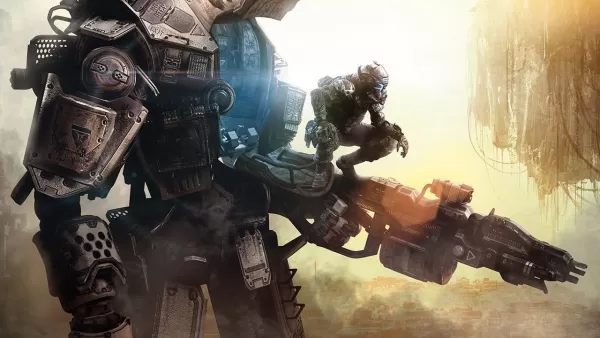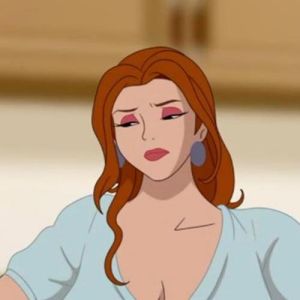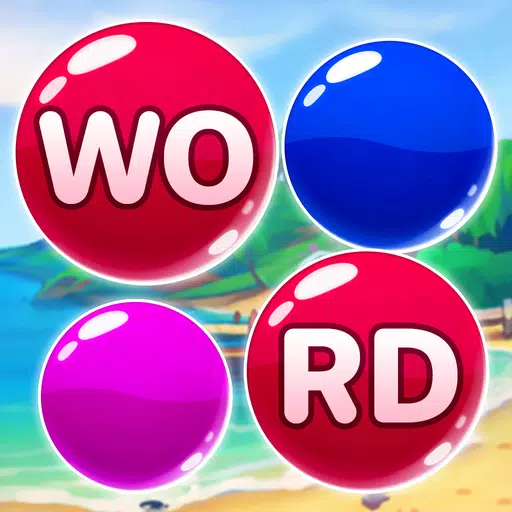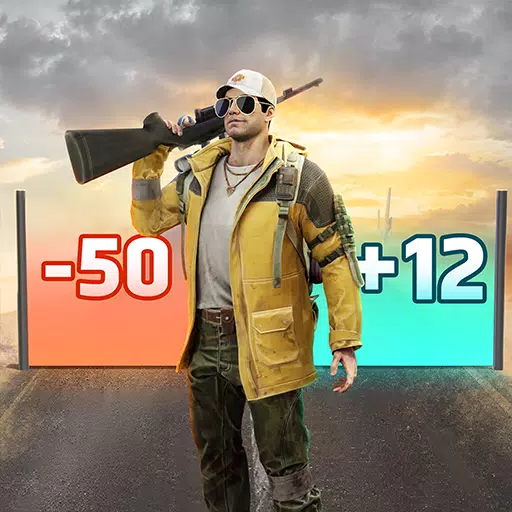With *Monster Hunter Wilds* shattering Steam records and *Resident Evil* experiencing a resurgence thanks to *Village* and a series of stellar remakes, it's easy to believe that Capcom can do no wrong. Yet, this wasn't always the case. Just a few years ago, following a string of disappointing releases, Capcom found itself struggling to maintain its foothold in the gaming industry, grappling with an identity crisis that threatened its legacy.
Capcom's flagship series, Resident Evil, which pioneered the survival horror genre, had lost its edge post-Resident Evil 4. Similarly, Street Fighter was faltering after the lukewarm reception to Street Fighter 5. These setbacks could have spelled the end for Capcom, but instead, they sparked a transformative journey.
A shift in Capcom's development approach, bolstered by a powerful new game engine, breathed new life into these beloved franchises. This reinvention paved the way for a string of successful releases, catapulting Capcom back to the forefront of the gaming world.
Resident Evil Lost Its Way
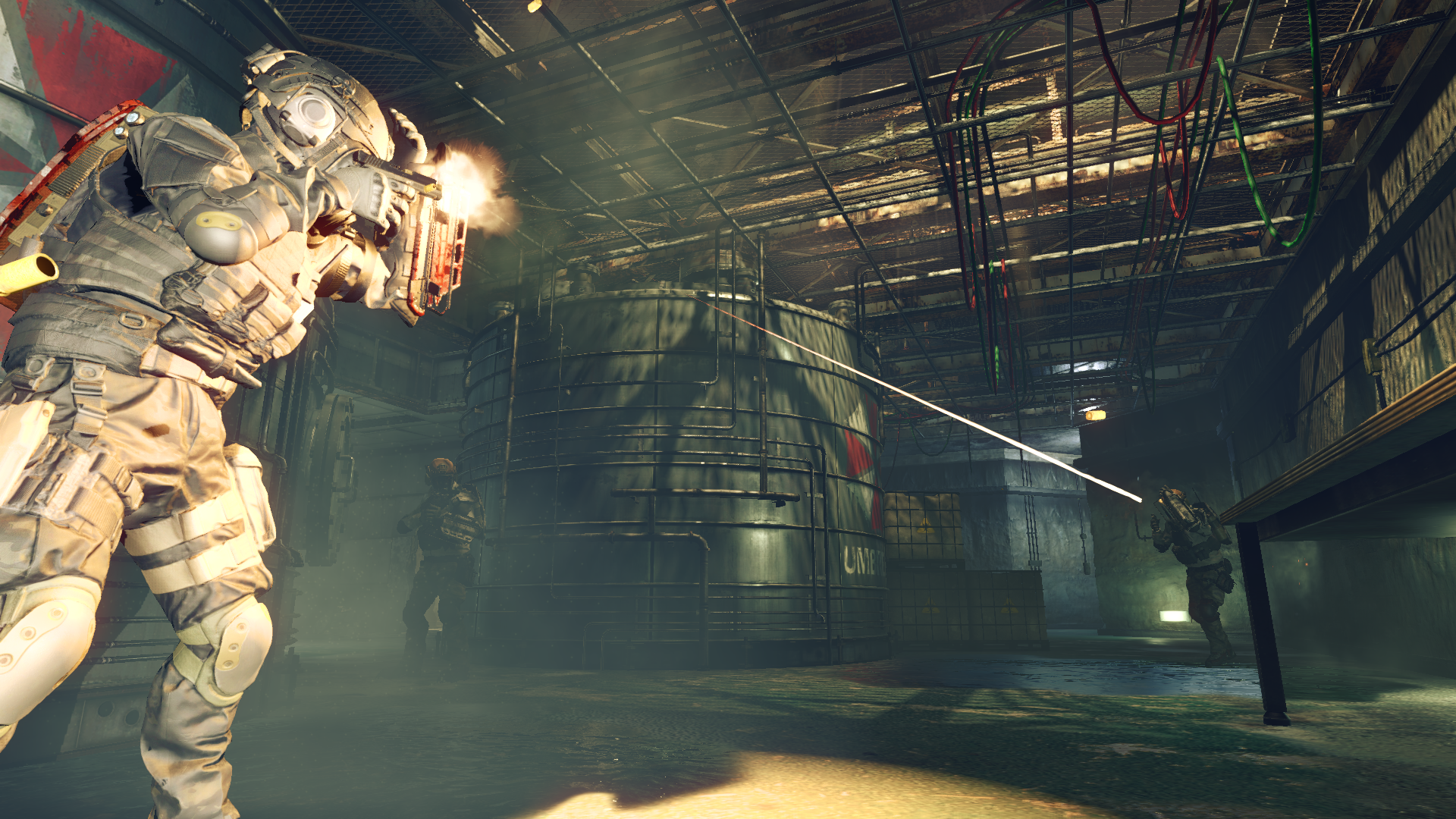
2016 was a challenging year for Capcom. The release of Umbrella Corps, an online co-op shooter, was met with widespread criticism from both reviewers and fans. Meanwhile, Street Fighter 5 left fans puzzled with its underwhelming execution, and Dead Rising 4 marked the end of new entries in its series.
This period was the culmination of a challenging phase for Capcom, which had been struggling since 2010. The mainline Resident Evil games were seeing declining critical reception despite robust sales. Street Fighter was on shaky ground, and other key franchises like Devil May Cry were absent from the scene. Even Monster Hunter, Capcom's most successful franchise at the time, was struggling to gain traction outside of Japan.
"Many of us started feeling that what the fans and players wanted from the series was getting a little bit separate from what we were making," a sentiment that starkly contrasted with Capcom's current standing. Since 2017, Capcom has consistently delivered hit after hit from its renowned franchises, earning both commercial success and critical acclaim. This impressive lineup includes Monster Hunter World, Devil May Cry 5, Street Fighter 6, and a trio of highly-praised remakes, along with a successful soft reboot of the Resident Evil series. Capcom's recent track record suggests an almost infallible approach to game development.
Achieving this success wasn't just about correcting past mistakes; it required a complete overhaul of Capcom's strategy, from understanding its target audience to adopting cutting-edge technology. To delve into this transformation, IGN interviewed four of Capcom's leading creatives to understand how the company navigated its way back to success.
Founded in 1979 as a manufacturer of electronic game machines, Capcom rose to prominence during the 80s and 90s with iconic 2D games like Street Fighter and Mega Man. The company successfully transitioned into 3D gaming with titles like Resident Evil, culminating in the creation of one of the greatest games ever made: Resident Evil 4.
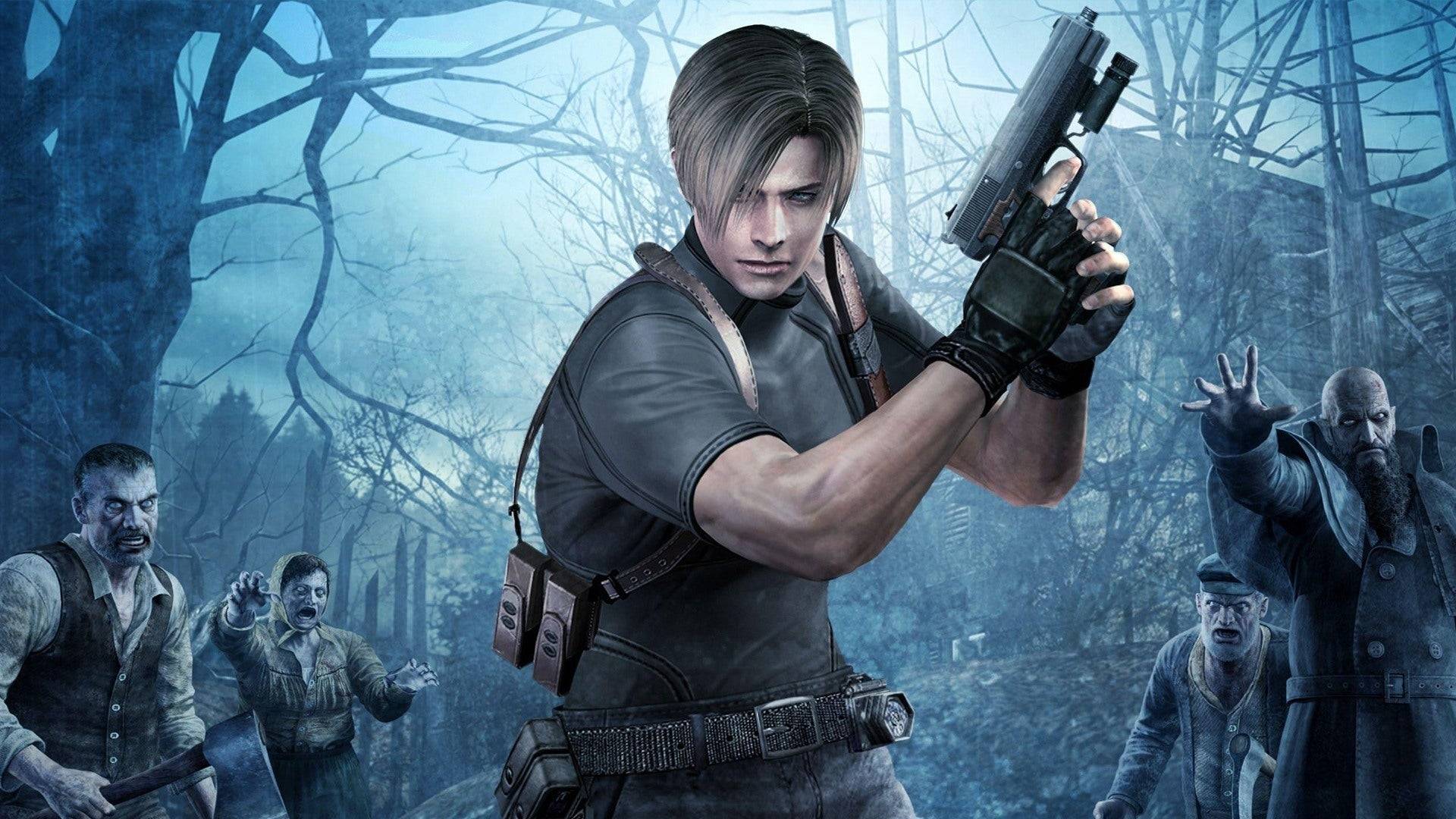
Resident Evil 4 (2005) is widely regarded as a masterpiece, blending horror with action seamlessly. However, this balance was lost in subsequent entries. Resident Evil 5 (2009) veered too far into action territory, with scenes that felt more like action blockbusters than horror experiences. This shift in focus led to a disconnect between the series' original vision and its audience's expectations.
"Overall throughout the Resident Evil series, we set up different goals, challenges, and things we want to try with each game… But this time, many of us started feeling that what the fans and players wanted from the series was getting a little bit separate from what we were making," explained Yasuhiro Ampo, director of the Resident Evil 4 remake.
Resident Evil 6 (2012) attempted to cater to both action and horror fans but ended up satisfying neither, as it split its narrative across six playable characters and three distinct storylines. This lack of focus led to dissatisfaction among fans and developers alike, prompting a reevaluation of the series' direction.
Capcom's struggles were not confined to Resident Evil. Street Fighter 4 was a massive success, but its sequel, Street Fighter 5 (2016), was met with criticism for its lack of single-player content and poor online functionality. Similarly, Devil May Cry saw diminishing returns, leading to the outsourcing of DmC: Devil May Cry to Ninja Theory, a move that was met with mixed reactions.
Street Fighter 5, The Lost Cause
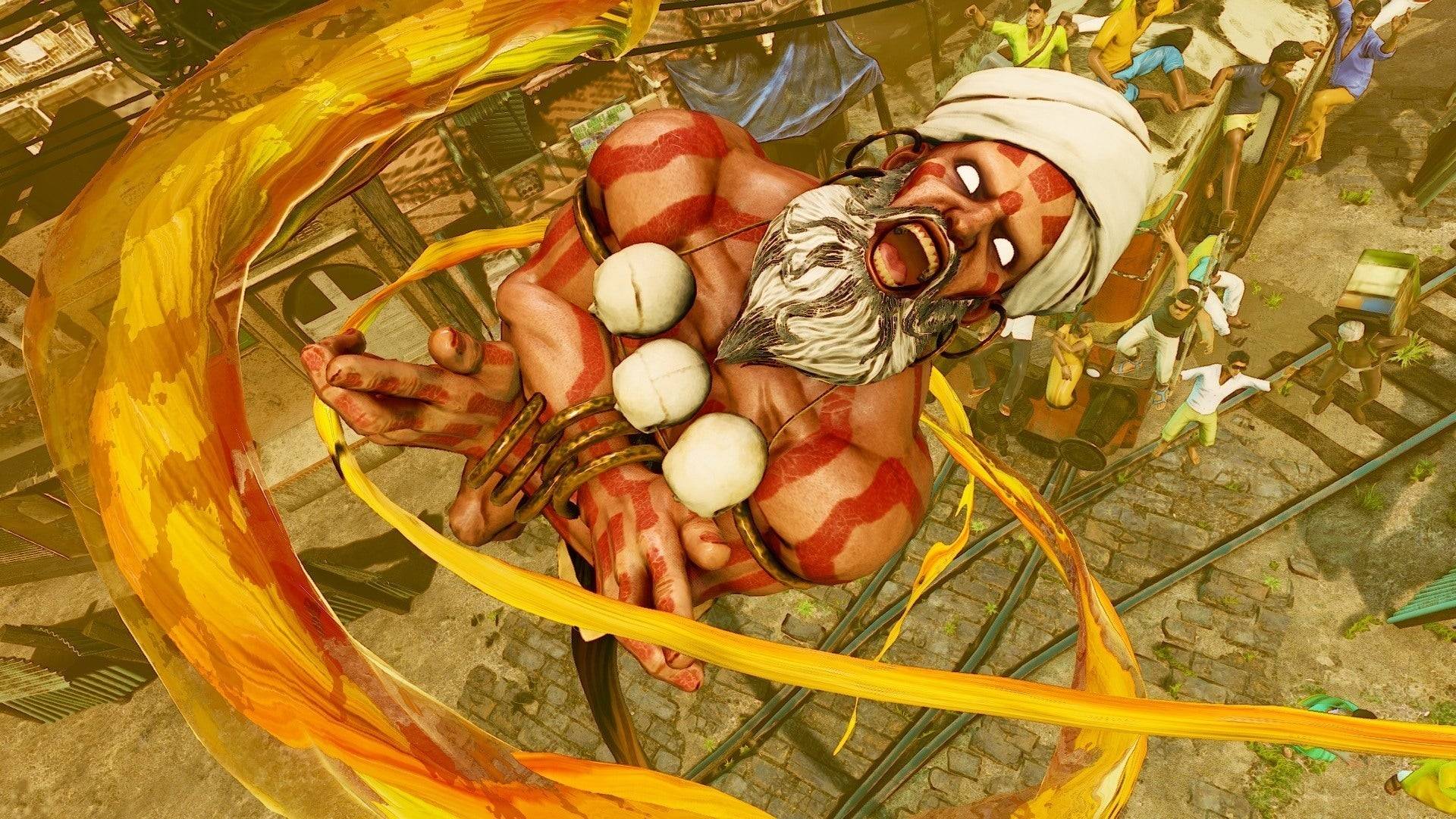
By the mid-2010s, Capcom began implementing strategic changes to turn its fortunes around. The first step was addressing the issues with Street Fighter 5. Director Takayuki Nakayama and producer Shuhei Matsumoto were tasked with stabilizing the game.
"There definitely were some challenges within the production of the game, and that was part of the reason why I was brought into the team," Nakayama admitted. "And because we were in a point in development where we couldn’t really make any major pivots or shifts, we had to proceed and move forward in the direction we were currently in, which created constraints on what we could and couldn’t do."
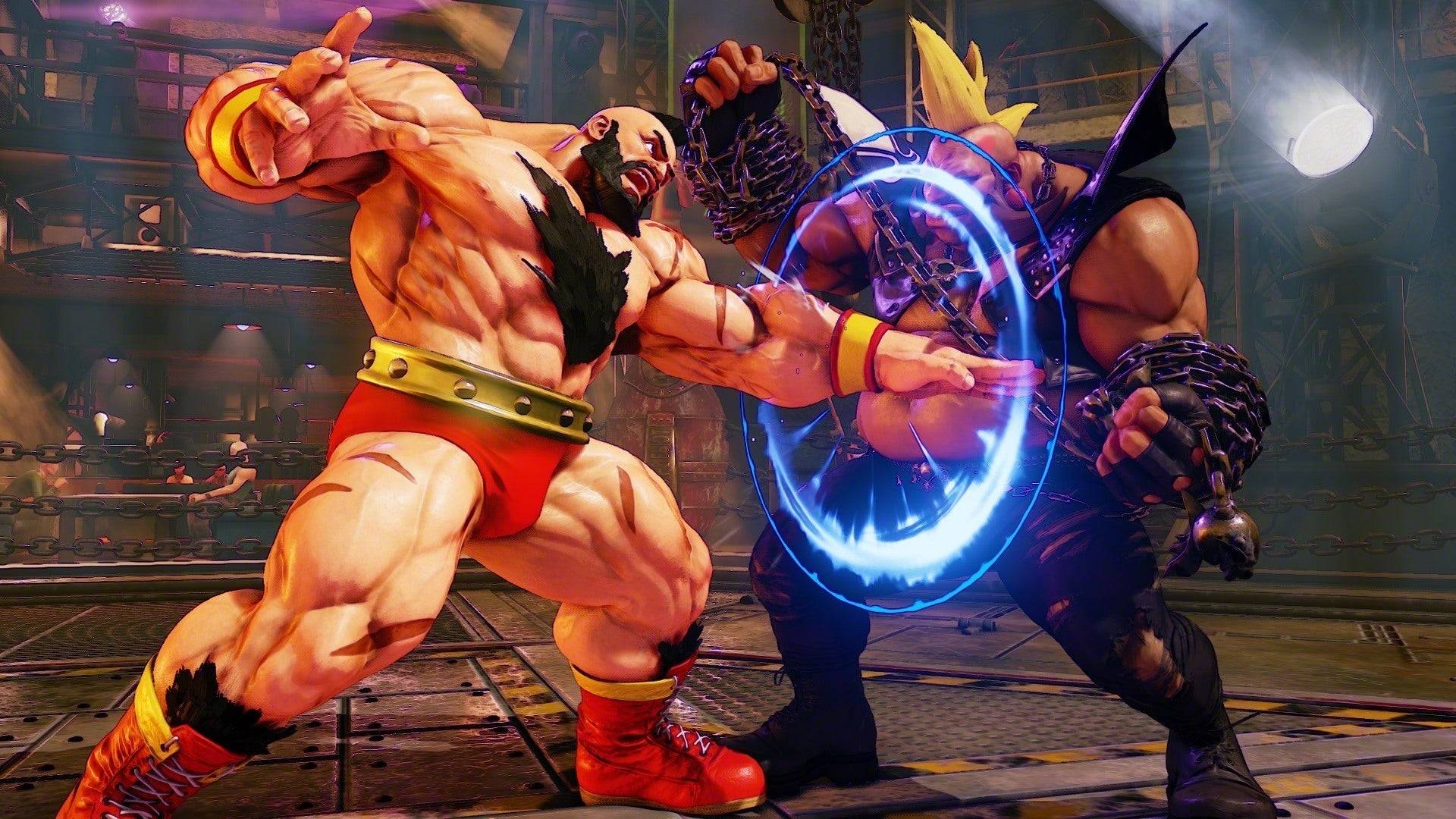
These constraints limited the scope of improvements, but Nakayama focused on addressing the most pressing issues, setting the stage for Street Fighter 6. "We just didn’t really have enough time to address some of the problems and challenges we faced in Street Fighter V," Nakayama said. "And so, with our hands tied behind our backs, we basically had to wait for those ideas to be brought back for the initial conceptual phases for Street Fighter 6, so we could tackle and do things properly for the next title."
Matsumoto added, "There wasn’t any sort of sense of like, ‘Okay let’s just end Street Fighter 5 and focus on Street Fighter 6.’ It was more like, while we were working on Street Fighter V, we were trying to figure out what we really wanted to do in Street Fighter 6 content-wise."
The development of Street Fighter 5 became a testing ground for new ideas, which were later refined and implemented in Street Fighter 6. This iterative approach allowed Capcom to learn from its mistakes and make significant improvements, culminating in Street Fighter 6 becoming one of the most critically acclaimed games in the franchise.
Monster Hunter Took Over The World
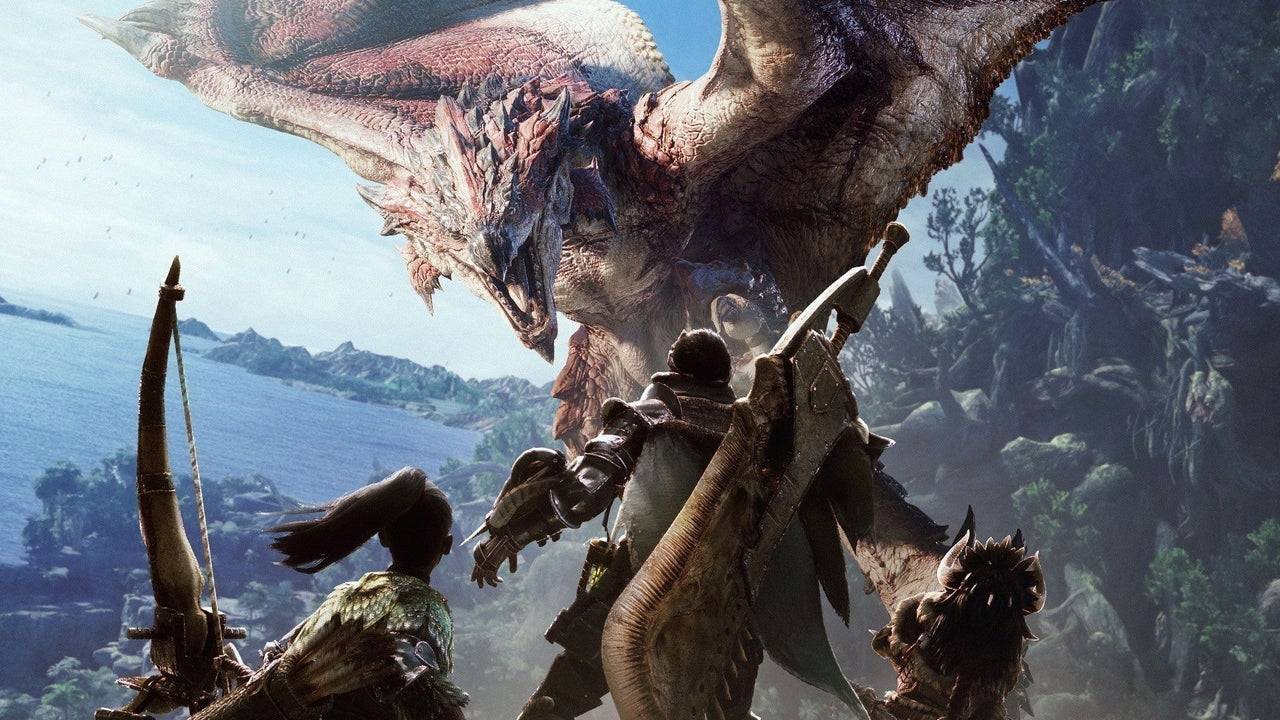
Around the time of Street Fighter 5's launch in 2016, Capcom underwent an internal reorganization to prepare for a new generation of games. This involved adopting the RE Engine, a significant upgrade from the aging MT Framework, and a new focus on creating games for a global audience.
"It was a few factors that came together," said Hideaki Itsuno, former game director at Capcom known for Devil May Cry. "The change of the engine and also all teams were given a very clear goal at that point to make games that reach the global market. [Games] that are fun for everyone."
Capcom's earlier attempts to appeal to Western audiences, such as Umbrella Corps and the Lost Planet series, were unsuccessful. The company realized the need to create universally appealing games. "I think that we had that clear goal of just focusing and not holding anything back," Itsuno added. "Towards making good games that would reach people from all over the world."
The pivotal year of 2017 marked a turning point with the launch of Resident Evil 7, which signaled the beginning of Capcom's renaissance. No series better exemplified Capcom's new global focus than Monster Hunter. Although popular in the West, Monster Hunter was significantly more successful in Japan, largely due to the popularity of handheld gaming.
"20 years ago in Japan, having a network connection wasn't as easy, and there weren’t a huge amount of people playing Monster Hunter online. However, handheld consoles made multiplayer gameplay easy without internet access, and I regard it as a great success that we had players experience the game in this way," explained Ryozo Tsujimoto, executive producer of the Monster Hunter series.
The release of Monster Hunter: World in 2018 marked a major shift for the franchise. Designed for global audiences, it featured enhanced graphics, expansive environments, and simultaneous worldwide release, eliminating regional exclusives. "Our approach to the globalization of the series and Monster Hunter in general really ties into not only the themes that we had going into designing the game, but also in the name of the game," Tsujimoto said. "The fact that we called it Monster Hunter: World is really kind of a nod to the fact that we wanted to appeal to this worldwide audience that we wanted to really dig into and experience Monster Hunter for the first time."
Global focus tests helped refine the game's systems, leading to changes like displaying damage numbers, which contributed to the series' unprecedented success. Monster Hunter: World and its follow-up, Monster Hunter Rise, both sold over 20 million copies.
"At its heart, Monster Hunter really is an action game, and that sense of accomplishment you get from really mastering that action is an important aspect of Monster Hunter," Tsujimoto explained. "But for newer players, it's really about getting to that point. The steps involved in getting to that sense of accomplishment is what we're trying to strategize for, in terms of designing for new players."
Resident Evil 7 Began Turning Things Around
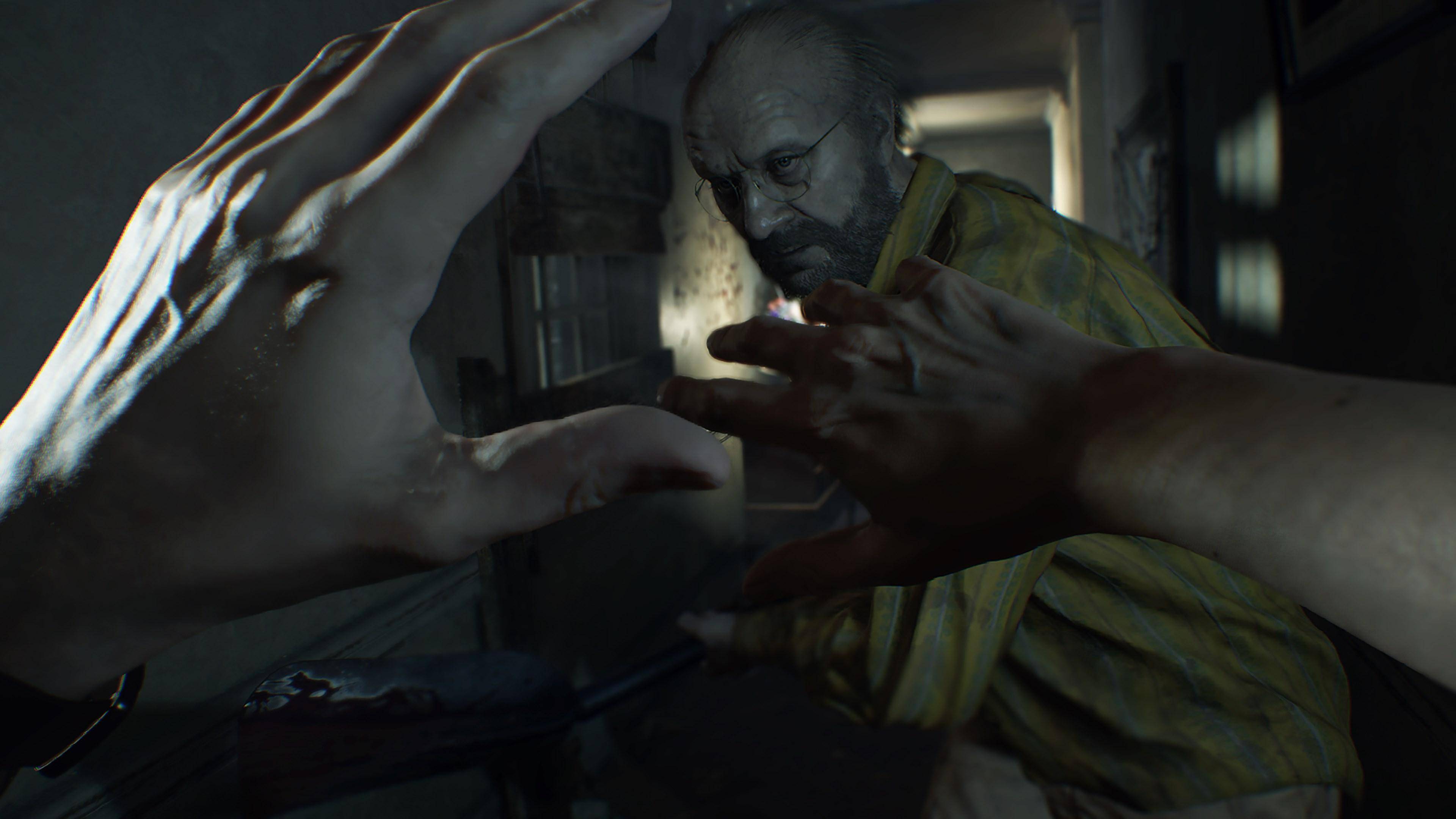
While Monster Hunter had a winning formula, Resident Evil needed to decide whether to focus on action or survival horror. Jun Takeuchi, executive producer of the Resident Evil series, made the decisive call to return to the series' survival horror roots.
"It was around the time I was working on Resident Evil Revelations 1 and 2. I was trying to test different things, try different approaches," recalled Yasuhiro Ampo, director of Resident Evil 2 and 4 remakes. "And around this time is when the R&D teams were divided into R&D division one and two. The executive producer of the Resident Evil series, Jun Takeuchi, took command of R&D division one, and he set the core direction that the Resident Evil series needed to go back to its origins, to its roots."
Resident Evil 7 was announced at PlayStation’s E3 2016 conference, featuring a first-person perspective and a return to survival horror. "With Resident Evil 7, the executive producer, Jun Takeuchi, made it clear that we cannot underestimate how critical it is for the series for it to be scary and about survival," Ampo said. "So he made it clear that Resident Evil 7 would go back to its origins, it would be very cautious with its survival elements."
The game was a resounding success, revitalizing the series with its terrifying atmosphere. While Resident Evil 7 and 8 adopted a first-person perspective, Capcom also planned to release third-person games through remakes, starting with Resident Evil 2. The demand for remakes was evident from fan projects at the time, prompting producer Yoshiaki Hirabayashi to initiate the project.
The Resident Evil 2 remake combined horror with the series' signature action and puzzles, introducing the menacing Mr. X system. Under Ampo's direction, it became one of the best-selling games in the franchise.
Following the success of Resident Evil 2, Capcom remade Resident Evil 3. However, remaking Resident Evil 4, still considered a modern classic, was approached with caution. "As you mentioned, [Resident Evil 4] was still a title that enjoyed some popularity. So there was a lot of internal discussion on how maybe it’s not a good idea," Ampo revealed. "Maybe we don’t need a remake for Resident Evil 4, especially because Resident Evil 4 is a game that is so beloved. If we get anything wrong with the remake, people might be quite vocal about their discomfort."
Despite initial hesitation, the Resident Evil 4 remake was a hit, refining the balance between action and horror while maintaining the game's core essence.
The Reason Behind The Change
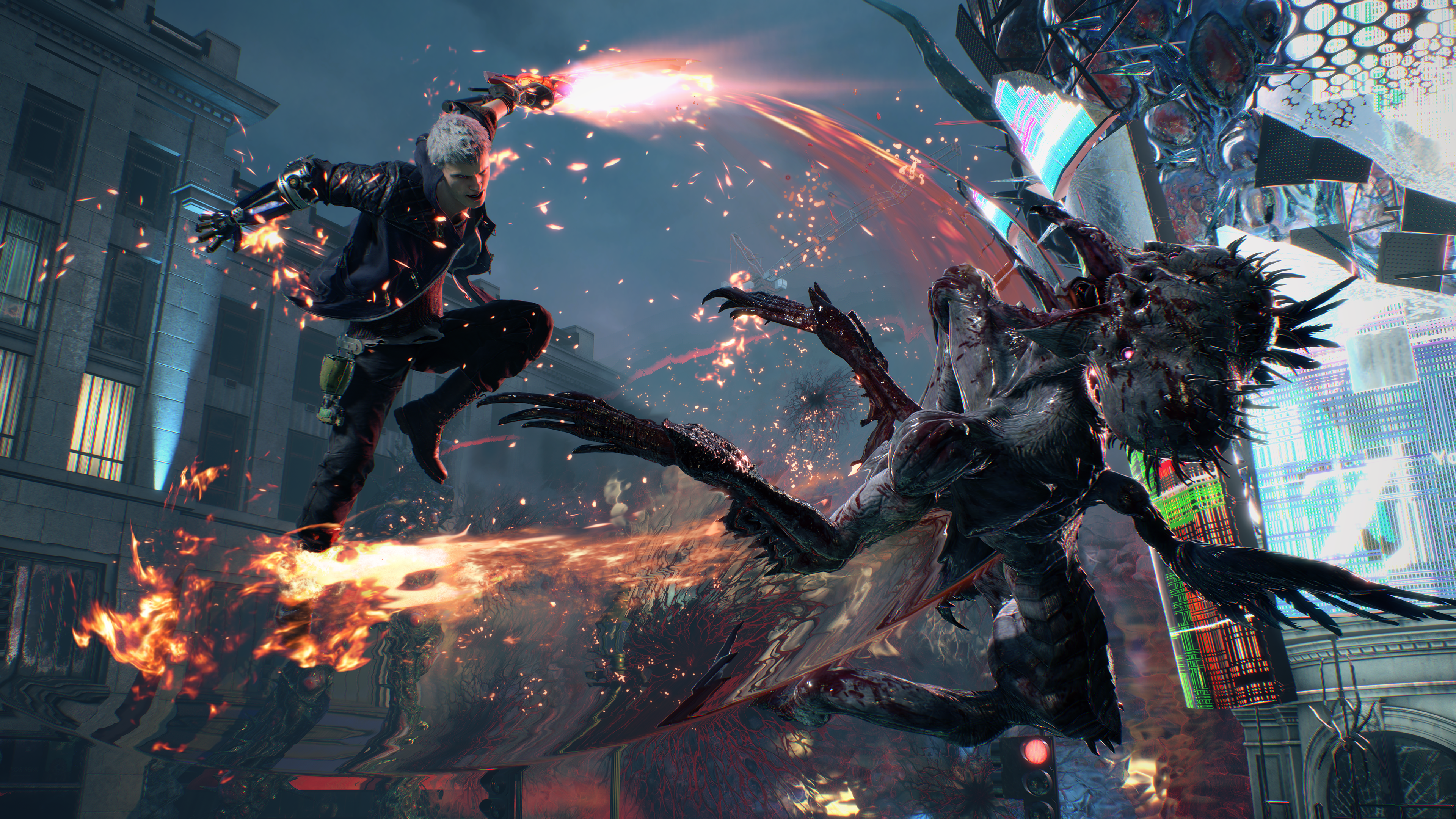
Hideaki Itsuno, director of Devil May Cry, recognized the need to challenge the action genre's softening trend. "I felt like the main trend with action games was to make action games that were very kind," Itsuno admitted. "Maybe, for me, a little bit too kind to the players, lending a hand to the player too much to my liking."
With a decade-long break from the franchise, Itsuno returned to direct Devil May Cry 5, leveraging the new RE Engine to enhance the game's visual fidelity and gameplay. "Technology-wise, there were not just little improvements that you would have when you work on a series consecutively," Itsuno said. "When there’s a wide timeframe, [the technology] changes significantly."
The RE Engine allowed for quicker development and more realistic graphics, enabling Itsuno to create a game that was both visually stunning and mechanically refined. "Devil May Cry is a franchise that stands on being cool," Itsuno stated. "That’s what the franchise is, it’s about being cool. Ever since I took over the series from Devil May Cry 3, I put everything that I, as a person, I considered throughout my life to be cool."
A New Capcom Golden Age
Since 2017, Capcom has released a game of the year contender almost annually, a feat that sets it apart from other major studios struggling with consistency. This winning streak is a testament to Capcom's focus on creating globally appealing games using advanced technology.
Capcom's commitment to maintaining its games' unique identities while expanding their global reach has been key to its success. Whether it's the intense survival horror of Resident Evil, the competitive edge of Street Fighter, or the intricate battle systems of Monster Hunter, Capcom has managed to stay true to its roots while attracting a broader audience.
As Capcom's contemporaries grapple with similar challenges, the company's recent achievements highlight a new golden age that shows no signs of slowing down. "It’s a very exciting time to be at Capcom right now," said Nakayama. "A lot of us are able to get excited about what we’re working on and are able to focus on things that we think are fun. So, yes, I guess a golden age may be one interpretation of that."
Tsujimoto added, "Capcom is going through a golden era, and, well, now we have to do everything we can so that this lasts one more year, one more year, and every year, one more year. Hopefully we can extend it as long as we can."


